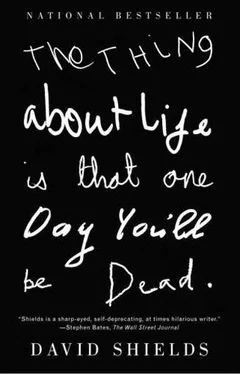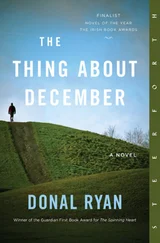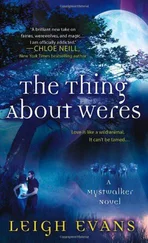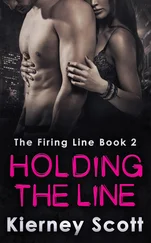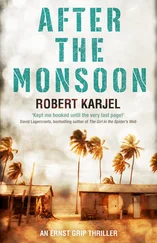I shut the door to the house, jiggled the doorknob, and pronounced the door locked. The only way to get in was to find the key somewhere on the porch come morning.
Carla got under the covers and lay down next to me in her sleeping bag.
“How do I look?” she asked.
I searched my mind for adjectives. I wanted to please her, choose the right ones by being descriptive. “Kissable. Dreamy. Exquisite.”
“H-H-How do I look?” I asked. I stuttered less when I was alone with Carla than I did with anyone else, but it still cropped up occasionally.
Carla laughed and avoided the question. Whenever she asked me how she looked, she knew that whatever I answered, she was irresistible. She wanted me to be handsome, but I wasn’t. My pimples wouldn’t go away; I wouldn’t go away. I was who I was. I wasn’t handsome. Carla knew that. She could see. She wasn’t blind. She loved me, nevertheless. She loved me for the complexity of my soul—something like that. Anyone can have clear skin (as my father does), blue eyes (ditto), wavy hair (till middle age), a mellifluous voice (still).
We touched fingertips, interlocked fingers, pressed palms together like flat stomachs, squeezed tight. I spread her middle fingers, moved my index finger up and back between her fingers. I held the back of her neck, closed my eyes, kissed her. Surprisingly, she sat up, kissed me, and then we bumped foreheads while I was undoing the zipper of my sleeping bag and sliding closer to her. She laughed at what she took to be my clumsiness. I kissed her pug nose. We joined lips and twisted our heads until I said, “We’re destined to make love tonight.”
“I don’t know,” she said. “I’m not sure I’m ready. It’s cold. I really need to use the bathroom first.”
She got out of her sleeping bag, gathered up a few things from her backpack, tried the door.
“It’s locked,” I said.
She turned the doorknob, pushed the door open.
“Liar,” she said.
“I honestly thought I’d locked the door,” I said.
She closed the door softly behind her while I lay down on the sleeping bag. Outside, tree limbs swayed like broken arms and thick sheets of cutting rain erased the sky. I waited for Carla, who could easily be another few hours. She got lost in bathrooms. She felt safe in them, at home, locked in. She had a toilet kit like a suitcase. She liked to be clean. She talked about towels and soaps and different kinds of tissues—their warmth, their softness. She liked to play with faucets. Transfixed on beauty, she stared into mirrors for hours, scared away blemishes.
I was, in a sense and for the moment, one of those blemishes: I wasn’t Carla’s dream boy. I didn’t have a deep, husky voice. I wasn’t the lioness’s dark brunette.
My father, reminiscing to me recently about his first girlfriend, said, “For about five years, from the time I was twenty-three until twenty-eight, I dated one of your Aunt Fay’s friends, Pearl Feinberg, a tall and very attractive young woman whose statuesque figure evoked appreciative whistles and oohs and aahs from onlookers. (Don’t think we called it ‘dating’ back then, but you know what I mean.) Pearl was employed as a secretary and part-time model for one of New York’s big apparel firms. I had a good job (working for the Journal-American ), a lovely girlfriend, a knock-your-eyes-out tan Ford convertible (which looked like today’s VW Cabriolet), some money. I felt like I had the whole world in my twenty-five-year-old hands.
“Pearl and I were always busy when we saw each other on the weekends: the movies, the theater, picnics, parties, lectures, and tennis in nearby Highland Park. Although we dated steadily for five years—all our friends expected us to be together forever—we never talked marriage. The fault was mostly mine. We were both well past the age of consent, but I was too immature, afraid to the point of being phobic about taking on responsibility. I was the least sophisticated twenty-eight-year-old in the Western Hemisphere.
“The Journal-American, like all the other daily newspapers in New York, was suffering huge losses in advertising as a result of the still-lingering Depression and made big cuts in staff. In 1938 I, too, became unemployed. I managed to land a job with the New York Post, but six months later that was wiped out. That summer, after three months of unemployment, I decided to take a job at Chester’s Zunbarg, the Catskills summer resort, maintaining the tennis courts and occasionally trying to teach tennis to overweight fur salesmen and Bronx schoolteachers. It was there and it was that summer that I met Helen [his first wife], who had just been divorced from a New York Times business page writer and was planning to spend most of her summer at Chester’s.
“Helen was a very sophisticated woman—by my lights, anyway. I learned all about sex and politics from her. She was, even then, deeply involved in Communist Party politics. In fact, one year after we met, she left her Wall Street job—she was a librarian—to work as a volunteer for the Party.
“That torrid summer—emotionally, not the Catskills’ fifty-degree climate—I forgot all about Pearl. At the end of the summer, I came back to Brooklyn and lived with Helen for several months before we got married. Never saw Pearl again.
“Forty years later, after coming to Providence for your commencement, I stayed for a week with Fay, now living in a posh condominium in Queens. One morning, she went shopping, and when she returned, the first thing she said was, ‘Milt, you’ll never guess who I ran into at the mall. You’ll never guess in a million years.’ I tossed out the names of some of my boyhood friends with whom I’d lost contact.
“‘Believe it or not,’ Fay told me, ‘I ran into your old flame, Pearl. Her name’s not Feinberg now. She married one of the boys from our old neighborhood who used to play tennis with us. Her name is Richman, the name of her late husband. She still looks beautiful; her hair is gray, she has two daughters and several grandchildren and lives in Queens. She gave me her phone number. I told her you were visiting from California and filled her in a little on what you were doing. She said she’d like to hear from you.’
“Well, 1978 was one year after your mother’s death. I was still working my way out of my depression. And the day before, I had seen the new Neil Simon play Act Two, which dealt with the anguish and torment faced by the leading character, a writer, who meets a young woman shortly after his wife’s death. He wrestles with the thorny problem of whether he should keep seeing this new woman in his life. He tells his brother, who encourages the relationship—‘life must go on’—that he has strong guilt feelings about the new relationship because of his still passionate feelings about his late wife. The writer winds up continuing the relationship and—as the curtain falls!—marrying her. I totally rejected Neil Simon’s cozy and glib ending. ‘How could he marry her so soon after his wife died?’ I said to myself while seated in the theater. ‘What were all those professions of undying love of his deceased spouse that he made in the opening act? Just foreign propaganda? And what about those Valentine gifts he sent every year like clockwork? Phony as a three-dollar bill.’ Those were the reasons I gave Fay for why I didn’t feel up to calling Pearl, let alone visiting her. But the biggest reason was my shame about the shabby way I had treated her, the god-awful way I ended it. Never calling or writing. Nothing. Shameful. Unforgivable.”
My cat, Zoomer, is exceedingly centripetal and social. The moment I spread out my papers on the dining room table, he lies on top of them. He greets most visitors by crawling onto their laps. His favorite activity is lying in front of the fire for hours while Laurie, Natalie, and I sit near him, reading. His second favorite activity is to lie between the three of us while we’re watching a movie; he eats ice cream from our bowls while we pretend not to notice. At night, he sleeps in the crook of Natalie’s neck, his paws wrapped around her forehead. And yet if we indulge him by petting him for too long, he inevitably reacts to this overdomestication by biting or scratching us. Zoomer loves to hide behind a bookcase and swat unsuspecting passersby or lie across the bookcase, one paw hanging in the air, and look out across the room—a lion surveying the savannah, scoping antelope. He wants to convince himself and us that, thoroughly pampered though he is, at heart he’s still a killer.
Читать дальше
